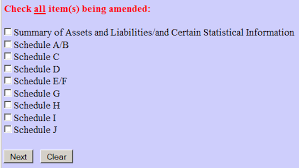Power of Central Government to amend schedules
- By : Com_comb
- Category : Company, Company Registration, Company Registration in Bangalore, LLP

Section 467: Power of Central Government to amend Schedules.
The subject of this provisions of Act, the Central Government may alter any of the regulations, rules, by notification, forms, Tables and other provisions contained any schedules of this Act.
Any notified alteration under sub-section (1) shall have effect as if enacted in this Act and shall come into force of the notification date unless otherwise, the notification directs:
Provided that in Table F no such alteration of Schedule 1 shall apply to any registered company before such alteration date.
Every alteration made by the Central Government under sub-section (1) shall be laid as soon as may be after it is made before each parliament House while it is in session for a thirty days total period which may comprised in one session or in two or more successive sessions and if, before the session expiry immediately following the session or aforesaid successive session, both Houses agree in making any modification in the alteration, or both houses agree that the alteration should not be made, the alteration shall thereafter have effect in such modified form only or be of no effect, as the case may be; so however, that any such annulment or modification shall be without prejudice to the validity previously of anything done in that alteration pursuance.

Section 468: Powers of Central Government to make rules relating to winding up:
The Central Government shall, make consistent rules with the Code of Civil procedure, 1908 (5 of 1908) given for all matters relating to the companies winding up, which are prescribed by this Act, and may make rules providing for all such matters, as may be prescribed.
- In particular, and without the generality prejudice of the foregoing power, such rules may be given for all or any of the following matters, namely;-
- as to the proceedings mode to be held for winding up of the company by the Tribunal;
- for the winding up of companies voluntary, whether by the creditor or by members;
- for the meetings of creditors holding and members in connection with proceedings under section 230;
- for giving effect to this act provisions of the capital as to the reduction;
- generally for all applications to be made to the Tribunal under this Act provisions;
- the holding and meetings conducting to ascertain the creditor’s wishes and contributories;
- the settling of the list of contributories and of the register of members the rectifying where needed, and collecting and applying the assets;
- the payment, conveyance, delivery, surrender or money transfer, property, books or to the liquidator papers;
- the calls making; and
- the time fixing within which claims and debts shall be proved.
- All rules made by the Supreme Court on the referred matters to in this Section as it stood immediately before this Act commencement and at such commencement in force, shall continue to be in force, till such time the rules are made by the Central Government and any reference to the High Court in relation to company winding up in such rules shall be construed as a Tribunal reference.
- Section 469: Power of Central Government to make rules.
- The Central Government may, by notification, make rules for the provisions for carrying out of this Act.
- Without prejudice of the provision of sub-section (1) to the generality, the Central Government may create rules for all or any of the matters which by this Act are needed to be or may be, prescribed or in respect of which provision is to be or may be made by rules.
- Any rule made under sub-section (1) may provide that thereof contravention shall be punishable with the fine that may extend to five thousand rupees and where the contravention is a continuing one, with fine further that may extend to five hundred rupees for every day after the first during which such contravention continues.
- Every rule made under this section and every regulation that the securities made and under this Act Exchange Board, shall be laid, as soon as may be after it is made, before each Parliament House, while it is in session, for a total period of thirty days that may be comprised in one session or in two or more successive sessions, and if, before the session expiry immediately following the session or aforesaid the successive sessions, both Houses agree immediately following the session or the aforesaid successive session, both Houses agree in any modification making in the rule or regulation or both Houses agree that the rule or regulation should not be made, the rule or regulation thereafter shall have effect only in such modified form or be of no effect, as the case may be; so, however, that any such annulment or modification shall be without prejudice to the validity of previously anything done under the regulation or that rule.
- Section 470: Power to remove difficulties:
- If any difficulty arises in giving effect to this Act of provisions, the Central Government may, by order in the official Gazette published, make such provisions, not inconsistent with the provisions of this Act, as appear to it to be expedient or necessary for removing the difficulty:
- Every order under this section made shall, as soon as may be it is after made, be laid before each parliament House.
- Financial Results preparation and submission
- The filed financial results and in compliance published with this clause on the basis shall be prepared of accounting policy accrual and in relation with adopted uniform accounting properties for all the periods.
- The company shall submit its quarterly annual financial results and years to date and exchange of the date to the exchange of stock to financial results date within forty-five days of each quarter end (other than the last quarter ), subject to the following:
- In case the company adapts unaudited financial results to submit, they shall be subjected to limited review by the issuer auditors by the statutory ( or in public sector undertakings case, by any practising Chartered Accountant) and such limited reviewed results ( accompanied financial results by the limited report review within forty-days shall be submitted from the quarter end ).
- In case the company opts to submit financial results audited for the entire financial year, within the end of the sixty days the financial year. The company shall also submit the financial results audited in accordance of the last quarter along with the entire financial year result, with a note that the last quarter figures are the figures balancing between audited figures in accordance with the full financial year and the published year to date figures up to the current financial year third quarter.
- In case the company opts to submit financial results audited for the full financial year, within sixty days of the financial year of the end. The company shall also submit the financial results audited in accordance of the last quarter along with the entire financial year results, with a note that the last quarter figures are the figures balancing between audited figures in respect of the full financial year and to date the published year figures up to the current financial year third quarter.
- If the company has subsidiaries:-
- it may in addition to submitting quarterly and year to date financial results stand alone under the item to the stock exchange under item (c) i.e. within forty-five days of the quarter of the end also submit quarterly and year to date financial results consolidated within forty-five days from the quarter end.
- As a part of its unaudited and audited prepared financial results under the item on the standalone basis (d), it shall also submit audited annual consolidated financial results to the stock exchange within sixty days from the financial year-end.
- As a part of it’s unaudited and audited financial results for the halfyear, the company shall also submit by way of note, an asset statement and liabilities as at the half-year end.
- However, when a company opts to submit un-audited financial results of the financial year for the last quarter, it shall submit asset statements and liabilities as the financial year in the end only along with the financial results audited for the full financial year, as soon as by the board they are approved.
- The covered financial year under this sub-clause shall be submitted within fifteen minutes to the stock exchange conclusion of the Board meeting or Committee in which they were pursuant approved to sub-clause (II), through such mode as may be specified by the exchange of stock.
- In case the company has subsidiaries and it opts to submit financial results consolidated as mentioned at (e) above it may submit the financials consolidated as per the International Financial Reporting Standards (IFRS) notified by the International Accounting Standards Board.
- The company shall ensure the limited review/ submitted audit reports on a quarterly to the stock exchanges/ annual basis shall be given by an auditor only who has subjected himself to the review process to the peer of Institute of Chartered Accountants of India (ICAI) and holds a certificate that is valid issued by the ICAI Review Board.
- The manner of Approval and the financial results authentication:
- The submitted financial results to the stock exchange by the Chairman shall be signed or director of the manager or full-time director. In the absence of all of them, it shall be signed by the company any director who is authorised duly to sign the financial results by the board.
- The limited review report in sub-clause (I) (c)(i) mentioned shall be placed before the directors of board or mentioned the Committee in item (b) above, being before submitted to the stock exchange where the variation as mentioned in Clause 41 (IV) (a)} between unaudited financials and amended financials pursuant for the same period limited review exceeds 10%.
- Provided that when the when the limited review report is placed before the Committee they shall be placed also at its next morning before the Board.
- The annual audited financial results shall be approved by the Board of the company directors and in the manner shall be signed specified in item(c).
- Board meeting intimation.
- The company shall give prior date information and the meetings of board purpose or Committee in which the financial results be considered under sub-clause (II)(a) or (II)(e), as the case may be, at least clear seven prior calendar days prior to the meeting (Excluding the intimation date and the meeting date).
- Simultaneously the company shall also issue a notice of the public in at least in one daily newspaper English circulating in the whole or substantially the whole of India and in published one daily newspaper in the regional language, where the company registered office is located.
- Financial results other requirements
- where there is a variation between the quarterly unaudited or year to date financial results and the amended results pursuant to the limited review for the period that is same, and –
- the net profit variation or net loss after tax is in excess of 10% or Rs. 10 lakhs, whichever is higher.-
- the company shall submit to the exchange of the stock an explanation of the reasons for variations while submitting the review of the limited report. The variations of explanations so submitted shall be by the Directors board approved.
- Provided that in results case for the last quarter, the above sub-clause shall apply in respect of variation, if any, between the year of date figures contained in the unaudited results and in the annual audited results contained in the figures.
- If the auditor has expressed any qualification or other reservation in accordance of submitted financial audited results or published under this clause, the company shall disclose such qualification or other reservation and impact of the profit that is same or loss, while submitting or publishing such results.
- If the auditor has expressed other reservation or any qualification in his report audited or in accordance limited review report of the financial results of any prior financial year or quarter which has an impact on the loss or profit of the period reported, the company shall include a note to the financial results-
- a, how another reservation or the qualification has been resolved; or
- b, if it has not been resolved, therefore the reason and the steps which the company intends to take in the matter.



No Comments